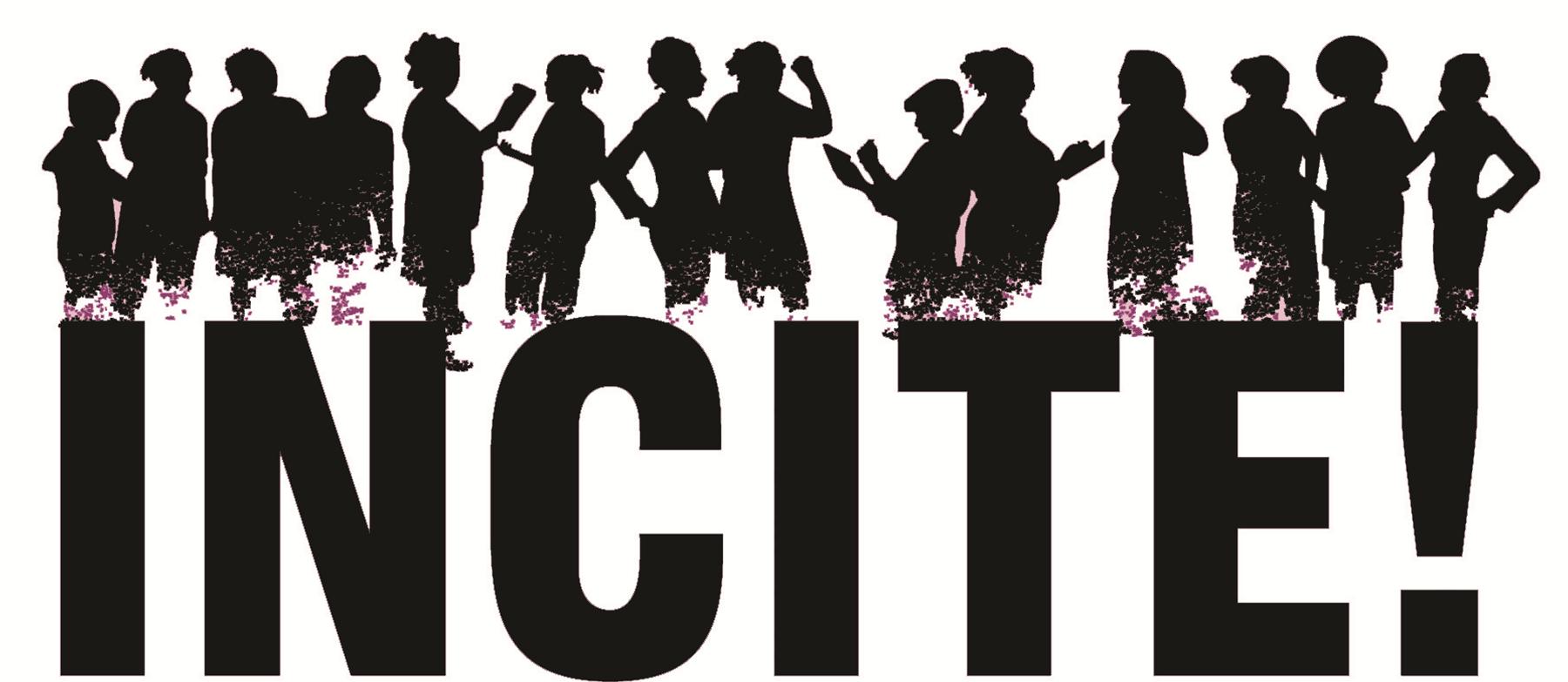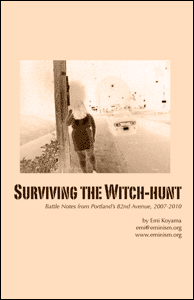[tweetmeme source= ‘yourtwittername’ only_single=false]Emi Koyama of eminism.org released a new zine entitled, Surviving the Witch-Hunt: Battle Notes from Portland’s 82nd Avenue, 2007-2010. Here’s the introduction:
This story starts in September 2007, when City of Portland abolished controversial Drug Free Zone and Prostitution Free Zone. These “zones” authorized police to issue “exclusion” orders for anyone who is suspected of drug- or prostitution-related activity without conviction, and arrest those who violate the orders of criminal trespass.
Because these “zones” unfairly targeted certain groups of people based on their race, class and gender, many people protested DFZ/PFZ over the years. So it was great news when the City finally recognized them for what they were, violation of our civil rights and liberties, and dropped the whole thing.
Ever since, however, neighbours in the previously PFZ areas — especially along NE/SE 82nd Avenue — complained about the increased level of street prostitution and other crimes they associate with it, and how they made their neighbourhood unsafe (and hurt their property values — which probably had more to do with the subprime lending crisis than with the end of PFZ).
The ensuing hysteria have led to the formation of several neighbourhood groups that either seek reinstatement of PFZ and/or other strategies to contain the prostitution “problem.” Some of these groups are more reasonable than others, but the whole conversation (neighbourhoods, police, city council, media) focused on solutions that center on how police can reduce prostitution. Tension rose high, and hostile, even hateful rhetoric were exchanged.
At the same time, anti-prostitution feminists entered the discussion, arguing that the problem of prostitution should be solved by cracking down on minor sex trafficking and educating johns how prostitution harms women and children to reduce demand for sexual services. They use intellectually dishonest arguments to intentionally conflate prostitution and trafficking, which also led to the increased demand for heavy-handed police intervention to “rescue” women and girls (by arresting and imprisoning them).
This booklet compiles some of my writing during this witch-hunt along Portland’s 82nd Avenue, which is just several blocks away from where I live. Throughout the debate, I have always maintained that the heightened situation on 82nd Avenue is not a law enforcement issue, but a symptom of social and economic injustices in our society.
I also include in this booklet a letter I received from a woman who was charged with the crime of murder for defending herself against an attacker (a pimp who attempted to force her to work for him). Because she was a 19-year old woman who had worked on 82nd Avenue, instead of a 19-year old attending college, she was demonised by our “concerned” neighbours as a merciless killer.
The zine is a fierce challenge to criminalization and scapegoating as institutional responses to sex work. Emi illustrates the importance of organizing for economic, housing, and social justice in the struggle to address the violence against people working in the sex trade.
Purchase online for $5, or preview an excerpt!
After Emi released the zine, she learned that, because of the organizing and advocacy of the Sex Workers Outreach Coalition, the City of Portland scrapped a plan to build a “10 bed in-patient rehabilitative housing” facility for women leaving prostitution and is instead giving women financial and other support so they can live in the community. More on that development in housing justice here.















Recent Comments